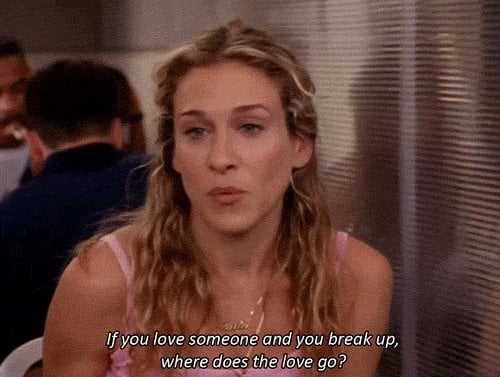
Whether you got your heart broken, or you’re the one who did the dumping, relationship breakups are the worst.
THE WORST.
Because no matter how long you were together, or who orchestrated the ‘conscious uncoupling’, splitting up can hit like a punch to the gut. It takes all the wind out and leaves you questioning how you go back from a ‘we’ to a ‘me’ when your life once revolved around them.
Watch MMConfessions: The moment I knew my relationship was over. Post continues after video.
Elle Woods would have us believe that all it takes is a box of chocolates, crying through a rom-com and entry into law school to get over a breakup, but the experts have other ideas.
Cassandra Kalpaxis, a family lawyer — or as I like to think of her, a relationship break up guru — calls this a period of “emotional unavailability”. When you’re so emotionally fried that you can’t be present, and find it hard to connect, not just with yourself, but those around you. It can affect your relationships, the way you run your days, and even the simplest choices can overwhelm you. Essentially, you’re switched off.
Sound familiar?
So, how do we navigate this period of instability? When you’re more likely to tear up over puppy videos on Instagram and bawl over a bucket or Ben & Jerry’s?

